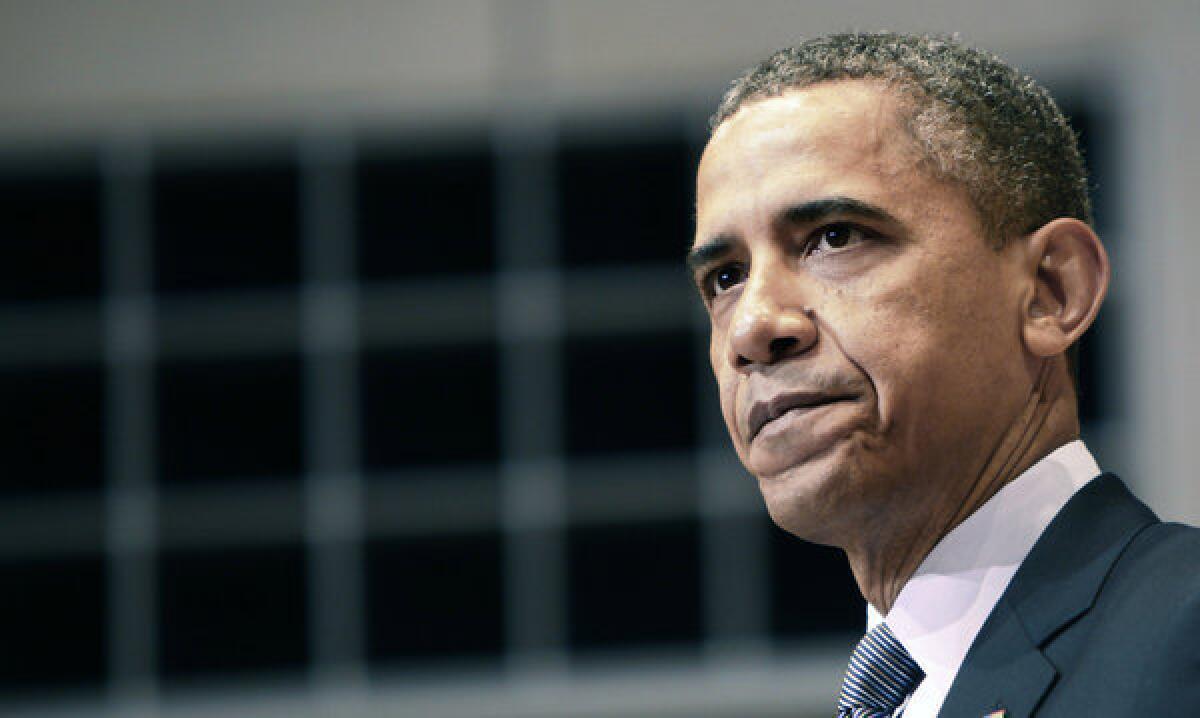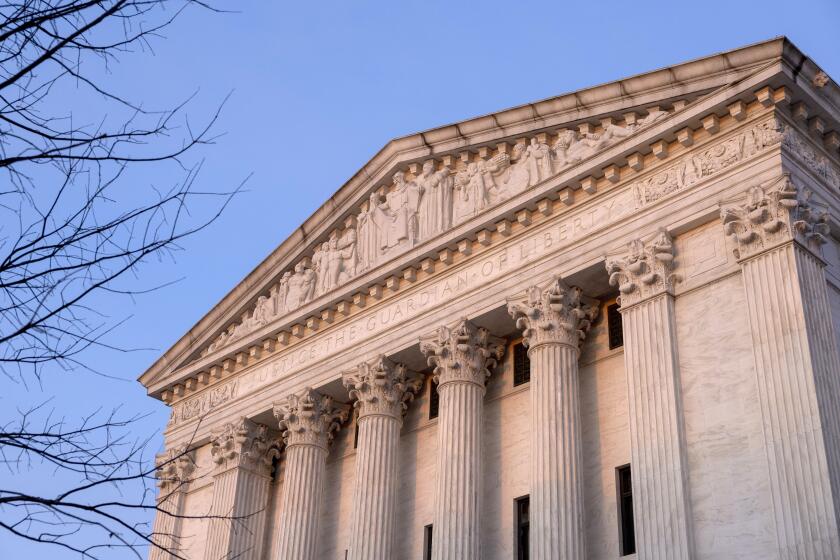Obama suffers more negative press than GOP, Pew study shows

WASHINGTON -- Which presidential candidate has gotten the most negative coverage in the press during this year’s primary? According to content analysis by the Pew Research Center, it’s President Obama.
The benefits of residing in the White House, and the so-called bully pulpit that it provides, were outweighed by the sheer number of voices attacking Obama and his policies during the primary, the analysis found.
“There were seven people at the outset running for his job, and numerous people on the stump criticizing the president,” said Tom Rosenstiel, director of Pew’s Project for Excellence in Journalism.
The press in turn, he said, follows each of the candidates and their surrogates’ messaging, providing a number of opinions running counter to the president’s singular voice.
The media coverage of Obama was particularly rough at the beginning of the year, with an average of nearly 47% negative stories compared with slightly more than 15% positive stories during the first four weeks of January, Pew found. As the economy and his poll numbers improved in March, so did the favorability of his media coverage, but the president still has yet to see more positive coverage than negative in 2012.
Rosenstiel dismissed the notion that the data could offer insight into the stereotype of a politically liberal media.
“A lot of what you see in tone reflects external events,” he said. “It doesn’t just reflect subliminal attitudes.”
This reflexive trend, in which “candidates doing better in polls do better in the media” as Rosenstiel put it, is reflected in the turnaround in the media’s coverage of Mitt Romney.
Pew’s study provides evidence that the media became convinced of Romney’s inevitability as the GOP nominee with his win in the Michigan primary. Before then, Romney’s coverage was more negative than positive by 4%. Since then, his fortunes have reversed, with 47% positive campaign coverage, and 25% negative. And media mentions of the topics of “delegate math and the concept of electoral inevitability”? They increased twelvefold after his home state victory.
For Rick Santorum, media coverage swung in his favor only after his major primary victories. After Iowa, Louisiana and his three-peat in Missouri, Colorado and Minnesota, his coverage became favorable, but lingering questions on his campaign’s financial viability and an inability to follow up with further victories stunted his momentum.
Another factor, the vetting of a candidate by the media, also played into Santorum’s rises and falls. Romney’s previous policy positions and background were examined by the media more toward the beginning of the race, with 14% of coverage devoted to his personal history in January and February. Since March, just 5% of coverage was devoted to those topics. For Santorum, the media paid marginal attention to him beyond his role in strategy in 2011, but as he emerged as a viable candidate, 18% of its coverage of Santorum focused on his policies and background.
As for those still in the race, Newt Gingrich and Ron Paul, the results offer some surprises. Gingrich’s electoral fortunes were tied to his media presence, both peaking in the wake of his victory in South Carolina. Featured prominently in 65% of stories after his win, his presence has since dwindled to no more than 10% through April. The favorable tone after his Southern victory has likewise tanked.
For the Texas representative, whose loyal libertarian following has consistently accused the media of not giving Paul enough coverage, the study showed that a mere 7% of stories between January and April featured Paul significantly. That’s an eighth of the coverage Romney received in the same span, and approximately a quarter of that given to Santorum and Gingrich.
Pew’s study was built around two means of gathering data. More than 11,000 news outlets were surveyed via computer-assisted analysis from Crimson Hexagon to determine the degree to which coverage was deemed positive or negative. At the same time, individual researchers took a sample of 52 news outlets and used them to build the data pertaining to the amount of coverage and the way in which it was framed.
Follow Politics Now on Twitter
Original source: Obama suffers more negative press than GOP, Pew study shows
More to Read
Get the L.A. Times Politics newsletter
Deeply reported insights into legislation, politics and policy from Sacramento, Washington and beyond. In your inbox three times per week.
You may occasionally receive promotional content from the Los Angeles Times.






